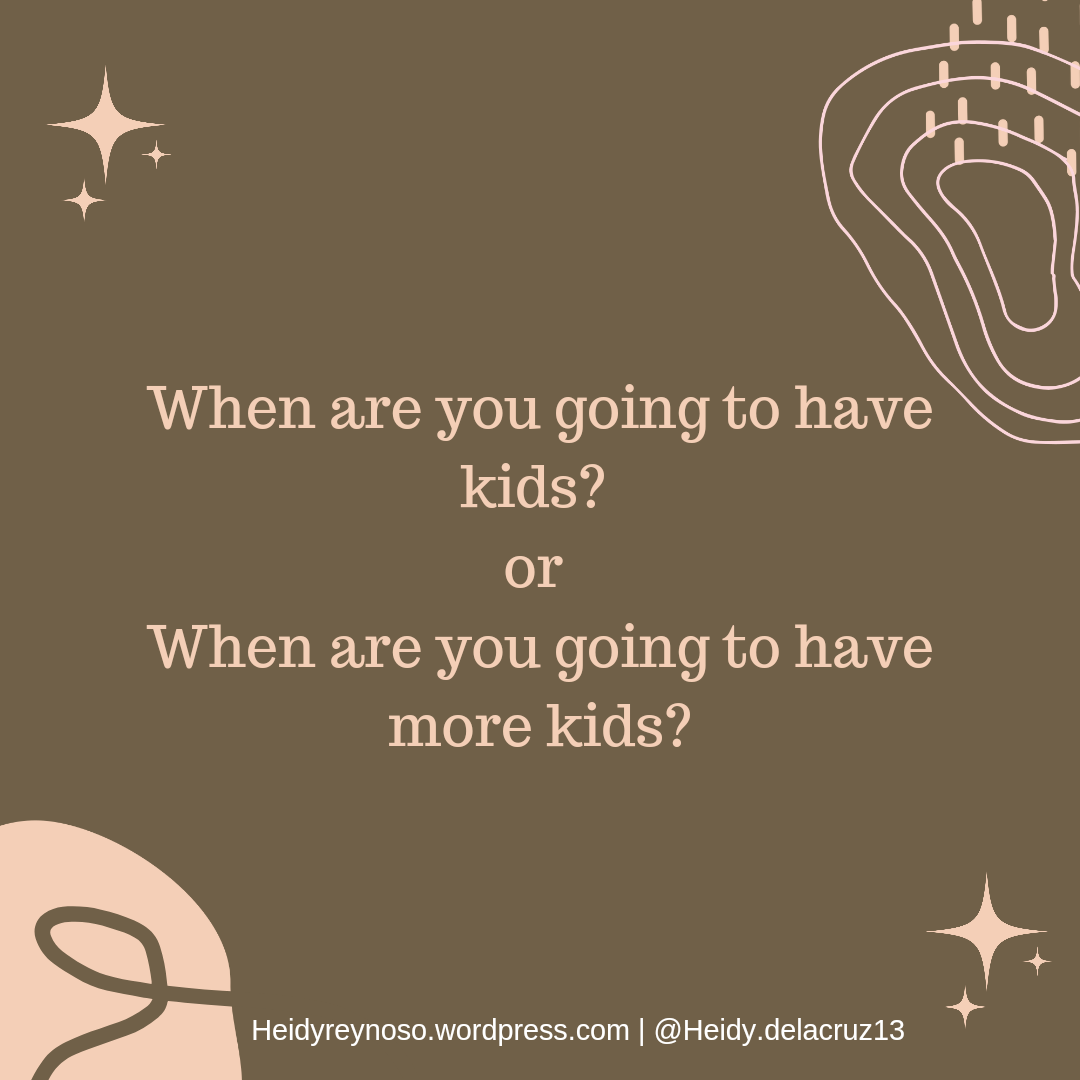Many of you know that last year I experienced a miscarriage. The anniversary of that loss was two weeks ago, to be exact, and you can read about my experience here. It took me a while to share my story; I knew I wanted to share it since I had learned that 1 in 4 women experience a miscarriage. So, it was more common than not, but I waited until I was ready to be vulnerable.
Since sharing my story, many women have sent me messages or texts informing me that they also experienced this terrible loss. Some have shared their own stories, others haven’t, and that is okay because the choice is theirs. The point of this post is that we must be careful when asking someone when they will have children, or if they already have one, if or when they are going to have more. We must be careful because we don’t know if they are trying and haven’t been able to conceive or have experienced a loss, and these questions can be very triggering.
The week after my loss, I attended my friend’s baby shower; mind you, I’m still going through the loss because when you miscarry, you bleed for weeks. And one person said that they were pregnant so that they couldn’t drink alcohol. I wasn’t drinking either, so another person looked at me like, “are you pregnant too?†And I responded very quickly, “oh, no, I’m not pregnant.†And I cannot express to you how painful that response was because I was still going through my loss. A baby I had prayed for and wanted so bad.
One woman who reached out to me told me about when they were experiencing their loss, they ran into someone they knew at the store, and they asked when she was going to try to conceive and not to wait too long. Meanwhile, she is standing there cramping and bleeding from the miscarriage and trying so hard not to cry.
Although these questions can seem harmless, it’s not any of your business if a woman wants to have children or not. It’s not anyone else’s business when a couple decides to try to conceive; it’s the business of that couple. And even if a couple already has kids or one kid, there is a thing called secondary infertility. According to the Cleveland clinic, “secondary infertility is just as common as primary infertility.â€
I know it’s very common to ask, especially in the Hispanic culture, like in families and such, but we must do better because it can be very insensitive. Please respect women’s uterus, please respect their decisions, and please understand that when a couple decides to reproduce, or even if they do decide, that is their business.
If you have experienced a loss or need someone to talk to – I am available as a listening ear with no judgment. ïŠ Â
With Love,
Heidy
Let’s Connect!
Instagram.com/Heidy.Delacruz13
Like this post? Subscribe with your email to receive my weekly newsletters on my upcoming posts! 🙂





I’m sorry for you loss. As a woman who lost 8 babies between 95 and 2008, I understand the pain. Last year, one of my former clients published a book, “Interruption: Navigating the Detours of Lifeâ€. She said the same thing, about how many people came forward after she shared her story of twin miscarriage. It’s so important that we discuss it more but it’s a really hard matter. Thank you for having the boldness and courage to discuss this. 💜â¤ï¸ðŸ’œ
Thank you so much. I’ll definitely look into that book. â¤â¤â¤â¤
I’m so sorry about your loss. I can’t even imagine how difficult that must be. I absolutely agree that people need to stop asking women about whether they plan to have kids or really anything to do with the topic. It’s really not anyone else’s business and can be traumatising for people who have gone through experiences like having a miscarriage.
Thank you for reading and yes, it can be very triggering.